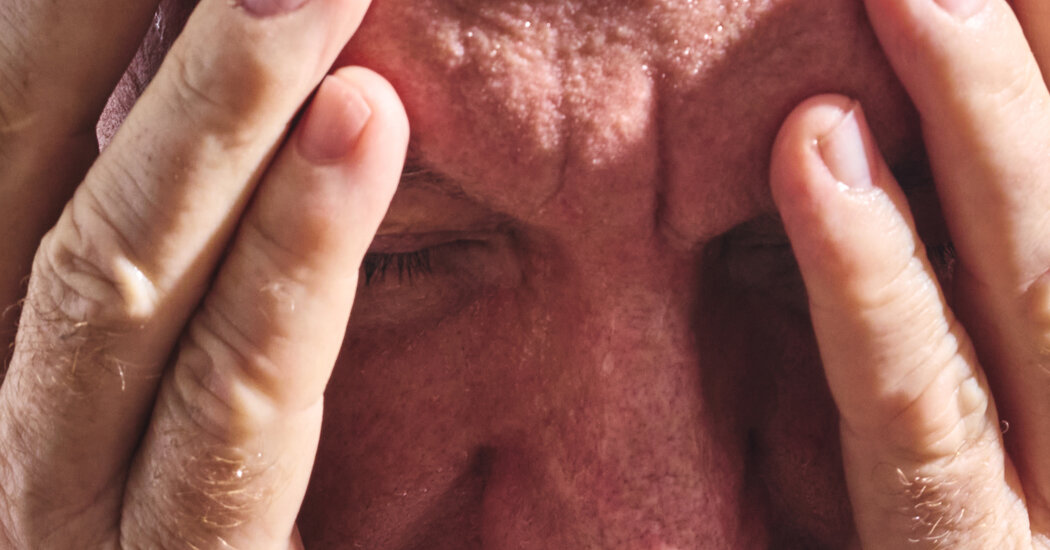Q: Humidity makes me tired, short-tempered and nauseous. Why don’t I feel this way in drier heat? And how can I stay comfortable and safe?
It’s more than a feeling: Humid weather really is harder on your body.
Humidity is a measure of water vapor in the air. And the hotter it gets, the more moisture the air can hold, said Jessica Lee, a public program coordinator at the National Weather Service. That’s why a sweltering summer day can feel so much stickier than a foggy morning in the spring.
High humidity can also keep your body from cooling down effectively, which makes the heat more dangerous, too. But experts say there are ways to stay safe — and sane.
Why humidity feels so terrible
The reason boils down to our go-to cooling mechanism: sweat.
When your body overheats, it sends a mixture of water and salt to your skin’s surface, where it exits your pores as sweat, said Dr. Anthony Mazzeo, a professor of emergency medicine at Penn Medicine. Sweat itself isn’t what cools you down, though. It’s the physics of evaporation.
“When sweat evaporates, it removes heat from the body,” said Dr. Rahul Sharma, the chief of emergency medicine at Weill Cornell Medicine and NewYork-Presbyterian Hospital. Liquid requires energy to vaporize. When sweat evaporates off our skin, it takes that energy from our body heat, cooling us down.
The trouble with high humidity is that the air is already full — or almost full — of moisture, Dr. Mazzeo said. This keeps sweat from evaporating efficiently. When sweat can’t evaporate, your body can’t cool down. And when you can’t cool down, your body sweats even more.
“The sweat accumulates on the skin, which makes us feel clammy and uncomfortable,” Dr. Sharma said.
What happens to your body
When your sweat can’t evaporate efficiently, your body must work harder to stay cool, said Dr. Gauri Agarwal, an associate professor of clinical medicine at the University of Miami Miller School of Medicine. This can cause exhaustion and weakness.
And the more you perspire, the more dehydrated you become, which adds to your exhaustion, she said.
Another cooling mechanism your body uses involves diverting warmer blood from internal organs, including those in your digestive system, Dr. Agarwal said. This can make you feel queasy.
High humidity can cause bronchial constriction, which means your airways narrow, Dr. Sharma added. This is riskiest for people with asthma or chronic obstructive pulmonary disease, or C.O.P.D.
Humid air also traps allergens and pollutants, he said, and mold grows more easily in humid conditions. All of this can all make it harder to breathe.
How to stay safe
Hot and humid weather may be miserable, but we can usually see it coming since most weather apps show relative humidity. Here’s how to prepare:
Hydrate. If the forecast looks humid, drink water before you’re thirsty, Dr. Agarwal recommended. This helps prevent the dehydration that comes from sweating too much. Sports drinks, juices and foods with high water content can hydrate you, too. But if you can, avoid alcoholic drinks, which dehydrate you even more, Dr. Mazzeo said.
Reschedule. Intense activity can make your body more likely to overheat, said Dr. Kyle Enfield, an associate professor of medicine at the University of Virginia. If you’re planning a hike, a long bike ride or another strenuous exercise, it may be worth rescheduling if you have the flexibility. You might also plan outdoor workouts for early mornings or evenings when it’s cooler.
Find shade. Many people don’t realize that the heat index — the “feels like” temperature in your weather app — is calculated for the shade, Ms. Lee said. In the sun, it can seem up to 15 degrees hotter, she said, so try to avoid direct sunlight.
Dress appropriately. Lightweight clothing can make you more comfortable when you start to sweat excessively, Dr. Agarwal said. Look for breathable fabrics.
Seek circulating air. If you have an air-conditioner, a humid day is the time to use it. On top of cooling the air, the machines also remove moisture from it. But if you don’t have air-conditioning — one in 10 U.S. households doesn’t — then Dr. Mazzeo recommended opening windows and placing cold water in front of a fan. This circulates cool air, which helps your sweat evaporate.
When to worry
Heat-related illness is the top weather-related killer in the United States, and humidity makes heat more dangerous. Infants and older people are especially vulnerable during extreme heat and humidity, Dr. Sharma said, as are people with health conditions like diabetes or heart disease.
If you start feeling dizzy or confused, or if you notice someone vomiting or slurring words, it could be time to call 911, he said.







